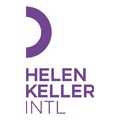


Helen Keller International is a non-profit organization with a vision of a world where no one is deprived of the opportunity to live a healthy life and reach their true potential. Co-founded in 1915 by Helen Keller and George Kessler, our work includes support to grow and eat nutritious food, stave off malnutrition, build strong immune systems, access life-saving medical treatments, and prevent and treat blindness and vision loss for over 80 million people in 20 countries across Africa, Asia, Europe, and the United States.
Helen Keller has been operating in Nepal since 1988, initially focusing on eye care and Vitamin A supplementation, but has since expanded to include maternal and child health and nutrition, nutrition behavior change, and nutrition-sensitive agriculture, among other sectors. We aim to tackle malnutrition and food insecurity in vulnerable communities by building local capacity and ownership; leveraging on strong monitoring, evaluation, and research systems; and advocating for national policies.
In response to the changing development landscape across the globe, Helen Keller has undergone a significant transformation. Formerly, the organization’s strategic focus was divided into three areas: nutrition, health, and neglected tropical diseases. We have now a two-pillar approach that prioritizes the food system and health systems and aims to create more impactful and resilient programs.
The organization is a pioneer in implementing integrated nutrition programs such as Suaahara I & II, Action Against Malnutrition through Agriculture (AAMA), and Sustainable Action for Resilience and Food Security (SABAL).
Helen Keller International is a non-profit organization with a vision of a world where no one is deprived of the opportunity to live a healthy life and reach their true potential. Co-founded in 1915 by Helen Keller and George Kessler, our work includes support to grow and eat nutritious food, stave off malnutrition, build strong immune systems, access life-saving medical treatments, and prevent and …
Views: 2847 | This job is expired 1 year, 2 months ago
Tentative duration:
The consultancy is anticipated to be completed within a timeframe of 90 days, with a total of 40 working days allocated for the project (April 25, 2024, to July 31,2024).
Project Overview
Today, over 2.5 billion people need at least one form of Assistive Technology (AT), such as wheelchairs, eyeglasses, or hearing aids, but in some countries, as few as 3% have access to the AT they require. The number of people needing AT is expected to grow to more than 3.4 billion by 2050. Helen Keller International aims to develop a thorough comprehension of the existing barriers that hinder access to AT in Nepal. Furthermore, the organization seeks to foster consensus among key stakeholders regarding the necessary long-term strategy and investments needed to tackle the identified needs effectively. With this effort, it is expected that a more knowledgeable, organized, and dedicated constituency for AT services will be formed, leading to the establishment of an enabling environment. This environment, in turn, will facilitate the generation of sustainable investments, cultivate political will, and garner government commitment to enhance access to AT in Nepal.
The "Case for Investing in Assistive Technology, 2021" by AT Scale report found that sustained provision of AT in low- and middle-income economies has a significant effect on lifetime earning potential, leading to a 9:1 return on investment in the form of USD 10 trillion in economic benefits over the next 55 years. This report underscores the substantial global returns on investments in AT. This initiative aims to reinforce these benefits in the local context, particularly in Nepal, through the development of a comprehensive local investment case and supporting AT investment with a costing analysis.
Summary of Job Purpose:
The consultant will undertake the following tasks:
Educational qualifications and experiences:
Educational Qualifications:
Experience:
Languages required: Expert knowledge of English and Nepali
Note: For detailed TOR, please email to [email protected] no later than April 15 2024, COB.
This job has expired.









